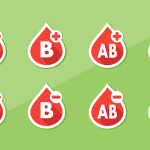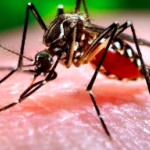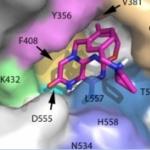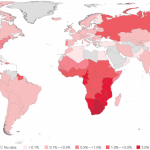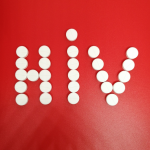In 1983 the US Public Health Service recommended that “Sexually active homosexual and bisexual men with multiple partners” refrain from donating blood. In 1986, all gay men were banned from donating blood. In 2013, the AMA stated the ban was “discriminatory and not based on sound science.” Have the bans been completely eliminated? Is the blood supply safe?
HIV
Everett Koop was a man of morals. A religious man who read the bible. He was also a man of science. He got his job through politics. Yet he knew how to keep these forces separate. Nowhere was this more apparent than in his pushback against political pressures to oppose abortion on health grounds and to educate the populace on AIDS and against tobacco use.
Antiviral drug development for COVID-19 took a back seat to vaccines during the brief time – when we thought that ending the pandemic was simply a matter of getting enough needles in enough arms. But the virus had other ideas: variants. Now it's looking like we may need a drug to complement the vaccines. Three are in development. Here's a look at Pfizer's PF-07321332. It should work, but don't hold me to that.
There are 14 new HIV infections in an outbreak that's hit homeless drug users in the Seattle area. These are the predictable consequences of a feckless public health policy, and one that lacks compassion.
Deadly viruses that cause infections like West Nile, Zika and Dengue are passed from mosquitos to humans by bites. But what about HIV? Why isn't it also spread this way? Turns out it's a combination of virology and luck.
In the years since AIDS became known to Americans in 1982, it's gone from a certain death sentence to a very manageable disease. And even as good as anti-HIV drugs are today, after nearly four decades of research HIV infection remains incurable. But thanks to two drugs and a bunch of rhesus monkeys, that may soon change.
With gonorrhea rates climbing in the USA and other countries, an Australian research team set out to determine whether an 1879 claim that Listerine mouthwash could cure it was fact or fiction.
The innovations of Dr. Henry Heimlich extended well beyond his famed anti-choking maneuver. The Heimlich Chest Drain Valve gets blood and air out of the chest cavity of soldiers shot there. He also developed the Heimlich MicroTrach, a tiny tube providing certain advantages to delivering oxygen into the trachea, and effectively the lungs.
Dr. Wafaa El-Sadr gives us a new way to think about stopping the HIV epidemic: "treatment as prevention." If implemented across the globe, it may be the key in stopping new cases of HIV -- and stopping the epidemic once and for all.
African women have one of the highest rates of HIV infection in the world. Although some means of prevention exist, compliance has not been great. However, two large, random controlled trials of vaginal rings containing a viral inhibitor, and requiring changing only once every four weeks, suggest that there may be help on the horizon.
With 140 million citizens in Russia, there's an estimated 1.5 million who have been diagnosed with HIV or AIDS. And the rate of HIV infection is rising 10 to 15 percent each year. To demonstrate just how backward Russia's public health policy is, take a look at its HIV statistics as compared to those of the United States.
As with most politicized topics, science gets quickly drowned out by activists' hyperbole and exaggeration. The American Academy of Pediatrics says that the benefits of circumcision outweigh the risks, though it falls short of giving the procedure a blanket endorsement.
